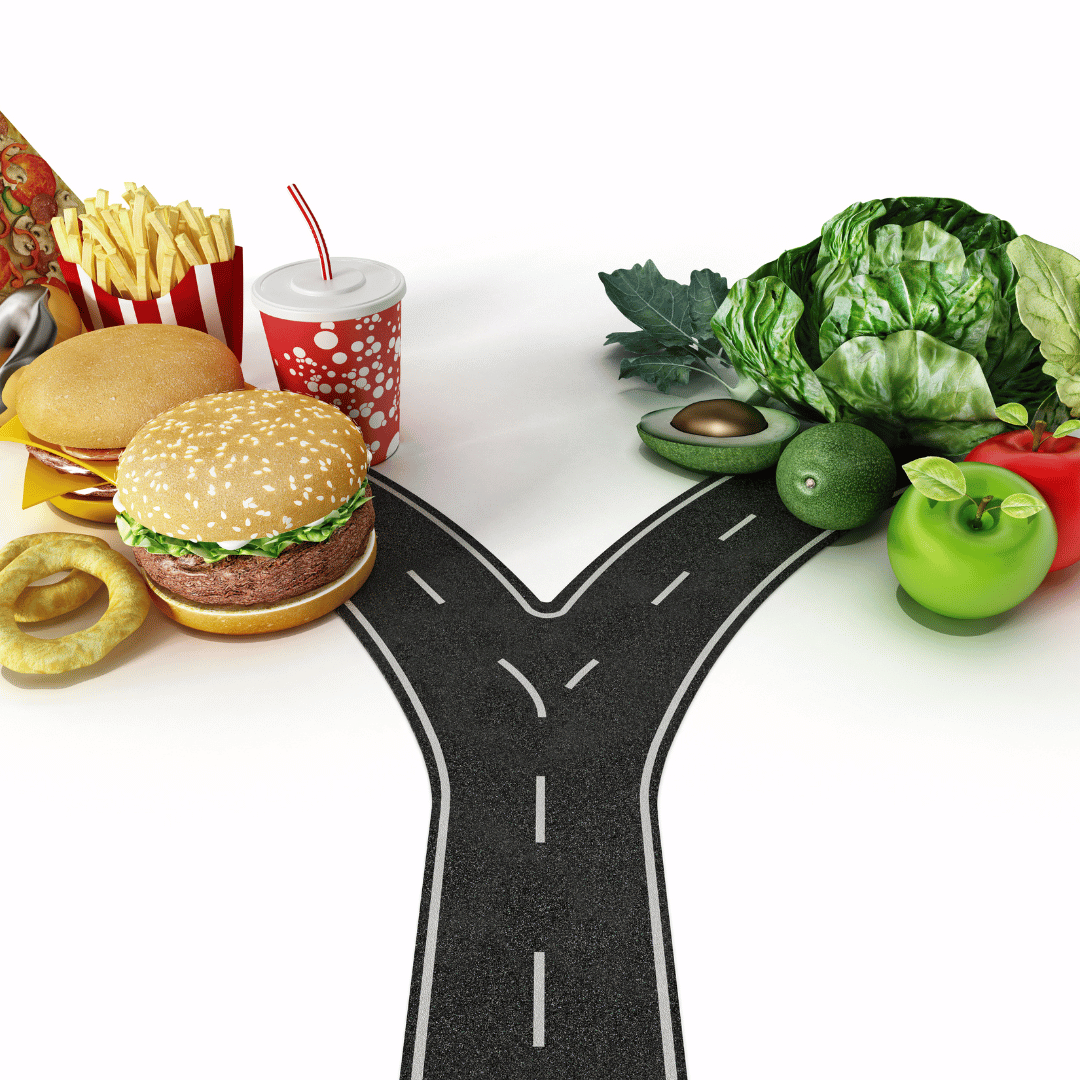Healthy Snacks and Food Options for Traveling: Stay Energized on the Go
Introduction:
Traveling is a wonderful and enriching experience, but it often comes with the challenge of finding healthy snacks and food options for traveling on the go. In this comprehensive guide, “Healthy Snacks and Food Options for Traveling,” we will explore the importance of making mindful choices and fueling our bodies with nourishing foods while on the road.
When we embark on journeys, whether by car, plane, or train, it’s crucial to prioritize our well-being and maintain our energy levels. However, the availability of nutritious snacks can be limited in airports, train stations, and even along the highways. This scarcity of healthy options can lead us to settle for less nutritious choices, which might leave us feeling sluggish and tired during our travels.
The focus of this blog post is to provide you with practical solutions and ideas for healthy snacks and food while traveling that are convenient and easy to carry while traveling. We understand the need for accessible options, especially for families with kids, who often require nourishing treats to keep their energy up during long flights or road trips.
Throughout this guide, we will emphasize the benefits of healthy snacks while traveling, such as sustaining energy, boosting mood, and supporting overall well-being. We will also delve into the best snacks to take on your trips and how to avoid unhealthy temptations that may come your way.
In our fast-paced world, eating healthily on the road might seem like a daunting task, but with proper planning and a bit of creativity, we can make better food choices and enjoy our journeys to the fullest. So, let’s dive into this ultimate guide to discovering delicious and nutritious options for all travelers, ensuring you have a happy and energized adventure wherever your wanderlust takes you!
Table of Contents
Section 1:Healthy Snacks While Traveling
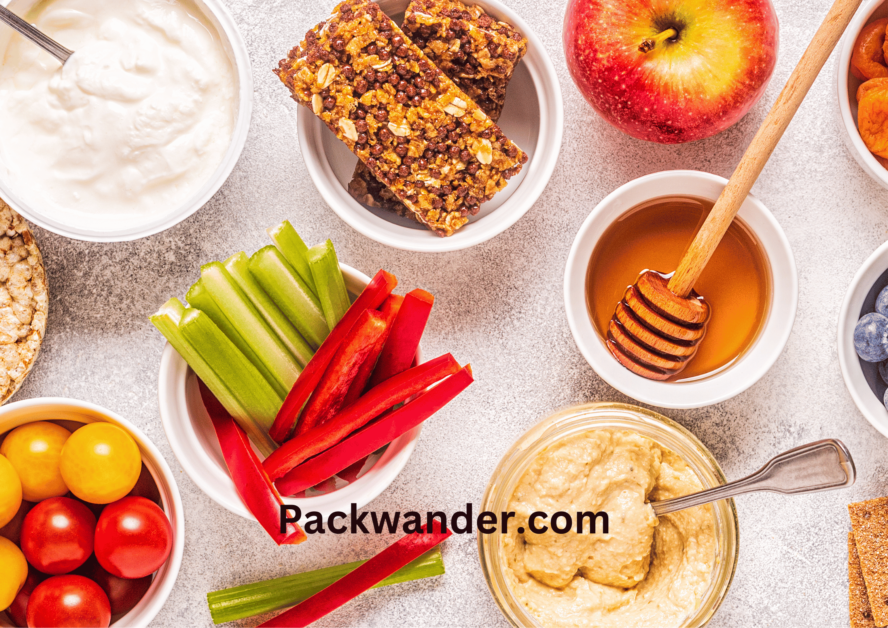
When we hit the road or take to the skies, one of the most vital aspects of our journey is fueling ourselves with healthy snacks while traveling. These nutrient-packed delights not only keep hunger at bay but also provide a boost of energy to keep us going during our adventures.
Defining Healthy Snacks: Healthy snacks are delicious and nutritious bites that provide essential nutrients without unnecessary added sugars, unhealthy fats, or excessive calories. They are a fantastic way to maintain a balanced diet and support our bodies while on the move.
The Importance of Carrying Nutritious Snacks: It’s easy to get caught up in the excitement of travel and forget about our nutritional needs. However, skipping meals or relying on processed junk food can lead to energy crashes and hinder our ability to enjoy the journey fully. That’s where healthy snacks for traveling in the car or on a plane come to the rescue!
By carrying nourishing snacks with us, we can avoid unhealthy temptations at gas stations or airport kiosks. Plus, these snacks are more satisfying and can keep us satiated until our next proper meal. So, packing a variety of healthy options in our travel bag is a smart move to stay energized and happy throughout the trip.
Types of Healthy Snacks for Various Modes of Travel: Whether you’re embarking on a long road trip, flying high in the sky, or taking a relaxing train ride, there are plenty of healthy snacks to suit every travel scenario.
For those traveling by car, consider packing a mix of fresh fruits, like apples and grapes, as well as convenient snacks for traveling on a plane, such as whole-grain crackers, nut butter packs, or trail mix. If you’re taking a train, how about some pre-cut veggies with hummus or a protein-rich Greek yogurt?
Especially when traveling with kids, it’s essential to have a collection of the best snacks for airplane journeys that cater to both young and adult taste buds. Think of fun-sized fruit cups, cheese sticks, or homemade granola bars to keep everyone happy and content during the flight.
In conclusion, the key to a successful and enjoyable journey is to embrace the idea of healthy snacks while traveling. By being prepared with nutritious options, we can ensure that our energy stays up, our spirits remain high, and our taste buds are delighted on the road, in the air, or on the tracks.
Section 2:Healthy Food While Traveling
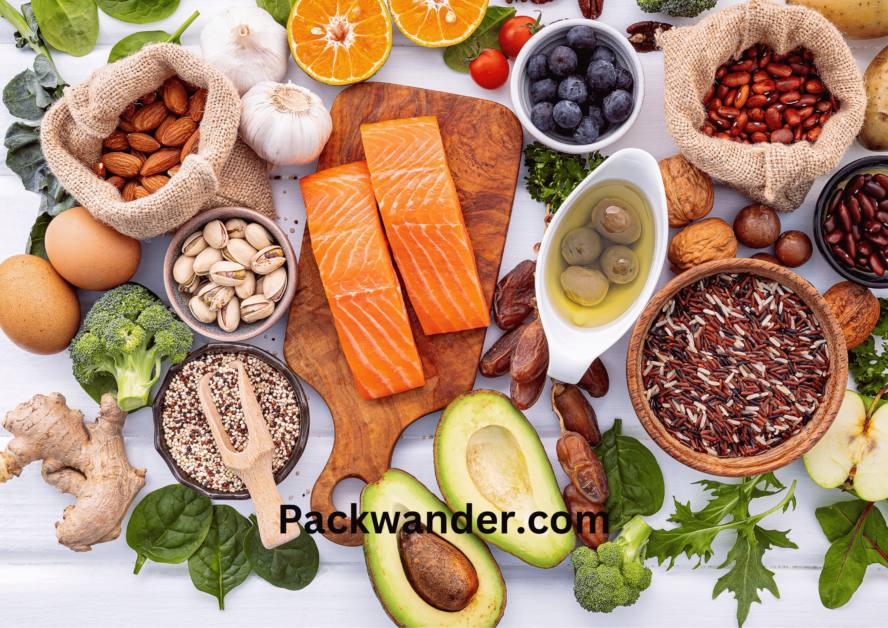
When we embark on our journeys, whether it’s a road trip, a flight to a new destination, or a train adventure, one thing remains constant – the need for healthy food while traveling. Sustaining ourselves with nutritious meals during our travels is essential for maintaining our energy levels and overall well-being.
Defining Healthy Food:
Healthy food refers to nourishing and wholesome meals that provide essential nutrients, vitamins, and minerals to support our bodies. These foods are typically low in unhealthy fats, added sugars, and excessive salt, making them an ideal choice for maintaining good health.
The Importance of Carrying Nutritious Food:
As travelers, we may often face limited options for healthy meals, especially at rest stops, airports, or train stations. In such situations, settling for processed or greasy fast food can leave us feeling sluggish and unsatisfied. This is where the significance of carrying healthy food for traveling in the car or on a plane comes into play.
By planning ahead and packing nourishing meals and snacks, we can avoid unhealthy choices and have control over what we consume during our travels. Nutritious food not only keeps us physically energized but also enhances our mental focus and mood, allowing us to fully enjoy the journey.
Types of Healthy Food for Various Modes of Travel:
Choosing the right healthy food for traveling on a plane or any other mode of transportation requires a balance of convenience, nutrition, and taste. Fortunately, there are plenty of options that cater to different travel scenarios.
For those on a road trip, consider preparing some wholesome sandwiches with whole-grain bread, lean protein, and fresh veggies. Don’t forget to pack some refreshing fruits like oranges or easy-to-eat grapes.
When flying, it’s wise to pack light and portable meals, such as quinoa salad cups or pre-made vegetable wraps. Additionally, individual packs of mixed nuts and seeds can be a great source of healthy fats and energy.
Especially when traveling with kids, having a selection of the best food for airplane journeys is essential. Think of bite-sized veggie sticks with hummus, whole-grain crackers with cheese, or fruit cups to keep little tummies satisfied.
In conclusion, the key to a delightful and health-conscious travel experience is to prioritize healthy food while traveling. By taking the time to plan and pack nourishing options, we can ensure that our bodies are well-fueled for the adventures ahead. So, let’s embark on our journeys with wholesome goodness in our bags.
Section 3: Eating Healthy On the Road
Maintaining good health while traveling is essential to fully enjoy our adventures. As we hit the road, hop on a plane, or embark on a train journey, making conscious choices about what to eat becomes a priority. Let’s explore some valuable tips and suggestions on what food to eat while traveling to ensure we stay energized and nourished throughout our trips.
Importance of Balanced Meals:
When it comes to eating healthy on the road, aiming for balanced meals is key. A balanced meal typically includes a combination of carbohydrates, proteins, healthy fats, and essential vitamins and minerals. By incorporating a variety of nutrients, we can fuel our bodies effectively and maintain steady energy levels.
Incorporating Fruits, Vegetables, and Lean Proteins:
Fruits and vegetables are rich in antioxidants and fiber, which promote digestion and support our immune system. Healthy food options while traveling should always include these nutrient powerhouses. Portable fruits like apples, bananas, or baby carrots can be excellent choices for a quick and refreshing snack.
Vital for muscle repair and overall well-being are lean protein sources like grilled chicken, turkey, tofu, or legumes. Consider adding lean proteins to your meals to feel satisfied and maintain energy during your journey.
Examples of Nutritious Meals for Travelers:
Travelers can prepare or find nutritious meals that cater to their dietary needs and preferences. Here are some examples of healthy food for traveling on the road:
- Veggie-packed Quinoa Salad: A colorful salad with quinoa, cherry tomatoes, cucumbers, bell peppers, and a light lemon vinaigrette provides a balanced and flavorful option.
- Grilled Chicken Wrap: A whole-grain wrap filled with grilled chicken, mixed greens, avocado, and a drizzle of yogurt sauce is a protein-packed and satisfying meal.
- Vegetarian Sushi Roll: A sushi roll made with avocado, cucumber, carrot, and a sprinkle of sesame seeds offers a delicious and nutritious option for sushi lovers.
- Mediterranean Bowl: A Mediterranean-inspired bowl with falafel, hummus, tabbouleh, and a side of pita bread is a wholesome and tasty choice.
- Nourishing Snack Pack: A snack pack with Greek yogurt, mixed nuts, and a medley of berries provides a mix of protein, healthy fats, and antioxidants.
In conclusion, maintaining a healthy diet while traveling doesn’t have to be complicated. By focusing on balanced meals and incorporating fruits, vegetables, and lean proteins, we can make informed choices about what is good to eat while traveling. With a little planning and creativity, travelers can enjoy delicious and healthy food on the road, ensuring a delightful and energized journey wherever their wanderlust takes them!
Section 4: Foods to Avoid While Traveling

While traveling, it’s easy to succumb to the allure of indulgent treats and fast-food options. However, making unhealthy food choices on the road can have negative consequences on our health and well-being. Let’s explore some common foods to avoid while traveling and discover healthier alternatives to keep us on track.
Unhealthy Food Choices and Their Impact:
- Fast Food Burgers and Fries: Fast-food burgers and fries are often high in unhealthy fats, sodium, and calories. Frequent intake of the product may result in gaining weight and elevating the chances of developing heart-related conditions.
- Sugary Snacks and Sodas: Sugary snacks and sodas can cause rapid spikes and crashes in blood sugar levels, leaving us feeling fatigued and less energized during our travels.
- Processed Convenience Foods: Pre-packaged snacks and convenience meals are typically loaded with preservatives, additives, and high levels of sodium, contributing to poor overall health.
- Deep-Fried Treats: Deep-fried foods, such as chicken nuggets or onion rings, are heavy in unhealthy trans fats and can be harsh on our digestive system.
Healthier Alternatives:
- Grilled Chicken Salad: Opt for a grilled chicken salad with fresh vegetables and a light dressing instead of fast-food burgers and fries.
- Fresh Fruits and Nuts: Choose fresh fruits like apples, oranges, or bananas, along with a handful of nuts, as a nutritious and satisfying alternative to sugary snacks.
- Homemade Snack Packs: Prepare your own snack packs with whole-grain crackers, cheese cubes, and some cherry tomatoes for a healthier and flavorful option.
- Baked Snacks: Instead of deep-fried treats, opt for baked snacks like sweet potato fries or baked zucchini chips for a lighter and more wholesome indulgence.
Staying Mindful and Informed:
The key to avoiding unhealthy food choices while traveling is to stay mindful and informed. When eating out or grabbing a snack, take a moment to consider the nutritional content of the food and its potential impact on your health. Look for restaurants or eateries that offer healthier menu options, and don’t hesitate to ask for modifications to make your meal more nutritious.
By being proactive in selecting healthier alternatives, we can ensure that our travel experiences are not only enjoyable but also beneficial for our bodies and well-being. So, let’s stay mindful of what foods to avoid while traveling, and savor the journey with nutritious and delicious choices that support our health every step of the way!
Section 5: Staying Energized on Long Journeys

Long-distance travel can be taxing on our bodies, and staying energized is crucial to make the most of our adventures. In this section, we will emphasize the significance of energy-giving foods during extended journeys and explore snacks that provide sustained energy to prevent fatigue.
Importance of Energy-Giving Foods: On long trips, our bodies require a steady source of fuel to maintain alertness and vitality. Energy-giving foods are those that provide a balance of carbohydrates, proteins, and healthy fats, supplying a slow and sustained release of energy. These foods can help combat fatigue and keep us feeling refreshed during the entire journey.
Foods for Sustained Energy:
- Whole Grains: Foods like oatmeal, whole-grain bread, and brown rice are excellent sources of complex carbohydrates. They release energy gradually, helping to stabilize blood sugar levels and avoid energy crashes.
- Nuts and Seeds: Almonds, walnuts, chia seeds, and pumpkin seeds are packed with healthy fats and protein. These energy-dense snacks provide a long-lasting source of energy and help keep hunger at bay.
- Dried Fruits: Dried fruits like apricots, dates, and raisins are rich in natural sugars and fiber. They offer a quick energy boost and contribute to sustained vitality during travel.
- Bananas: Bananas are a fantastic source of potassium and carbohydrates. They can help replenish electrolytes and provide an instant burst of energy.
List of Snacks for Long Trips:
- Trail Mix: A mix of nuts, seeds, and dried fruits provides a perfect combination of energy-giving nutrients for long drives or flights.
- Peanut Butter Sandwich: A whole-grain peanut butter sandwich is both filling and rich in protein, making it an ideal snack for extended journeys.
- Energy Bars: Choose natural and low-sugar energy bars that contain a blend of nuts, seeds, and dried fruits for sustained energy.
- Greek Yogurt with Honey: Greek yogurt with a drizzle of honey is a delicious and protein-packed option to keep you energized on the road.
- Hummus and Veggie Sticks: A serving of hummus with carrot and cucumber sticks offers a nutritious and crunchy treat for long trips.
- Apple Slices with Nut Butter: Pair apple slices with almond or peanut butter for a delightful combination of fiber, healthy fats, and natural sweetness.
- Granola with Greek Yogurt: A small container of granola with Greek yogurt provides a delightful and energizing snack for your journey.
In conclusion, the importance of consuming foods that give you energy while driving or during traveling long distances cannot be understated. By incorporating energy-giving foods into our snacks, we can maintain sustained vitality, prevent fatigue, and fully embrace the excitement of our long journeys. So, let’s stock up on these nutritious treats, ensuring we stay energized and enthusiastic throughout every step of our travel adventures!
Section 6: Eating Healthy While Traveling for Work
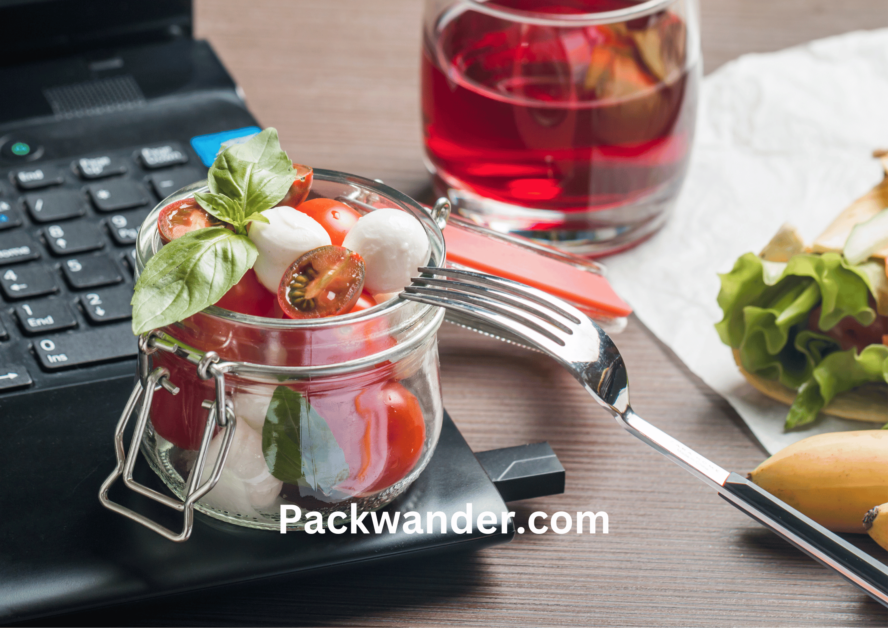
Maintaining a healthy diet can be challenging, especially for busy business travelers constantly on the go. However, with a little planning and some practical strategies, eating healthy while traveling for work is entirely achievable. Let’s explore some valuable tips and suggest nutritious meals and snacks that can be easily found while on the road.
Practical Advice for Business Travelers:
- Research Ahead: Before your trip, research the dining options at your destination. Look for restaurants or eateries that offer healthier menu choices, such as salads, grilled proteins, and vegetable-based dishes.
- Pack Healthy Snacks: Bring along a supply of nutritious snacks like trail mix, whole-grain granola bars, and dried fruits. Having these snacks on hand will prevent you from reaching for less healthy alternatives during busy workdays.
- Stay Hydrated: Carry a refillable water bottle and aim to drink plenty of water throughout your journey. Staying hydrated helps maintain energy levels and supports overall well-being.
- Choose Balanced Meals: When dining out, opt for balanced meals that include a mix of lean proteins, whole grains, and colorful vegetables. Avoid heavy sauces and excessive amounts of salt.
Nutritious Meals and Snacks on the Road:
- Salad Bowls: Many fast-food chains and restaurants now offer customizable salad bowls with a variety of fresh ingredients, making them a perfect choice for a quick and nutritious meal.
- Bowl of Soup: Look for broth-based soups packed with vegetables and lean proteins. They are both comforting and nourishing during busy workdays.
- Greek Yogurt with Fresh Fruit: Grab a container of Greek yogurt with fresh berries or slices of banana for a protein-rich and satisfying snack.
- Veggie Wraps: Seek out whole-grain wraps filled with a medley of roasted vegetables and hummus for a wholesome and portable meal.
- Brown Rice Sushi Rolls: Sushi rolls with brown rice, avocado, and cucumber are a nourishing and delicious option for a light lunch or dinner.
Mindful Eating on the Road: It’s essential to be mindful of how to eat healthy while traveling for work. Avoid overindulging in high-calorie and low-nutrient foods. Instead, focus on enjoying a variety of colorful and nutrient-dense meals that will keep you energized and focused during your business trip.
By being proactive in your food choices and taking time to select healthier options, you can maintain a balanced and nutritious diet while managing the demands of work travel. So, let’s approach every work trip with a commitment to our well-being, savoring every nutritious bite that fuels us for success on our journey. Here are some travel Essentials for women.
Section 7: Navigating Airport Food Courts: Making Healthy Choices
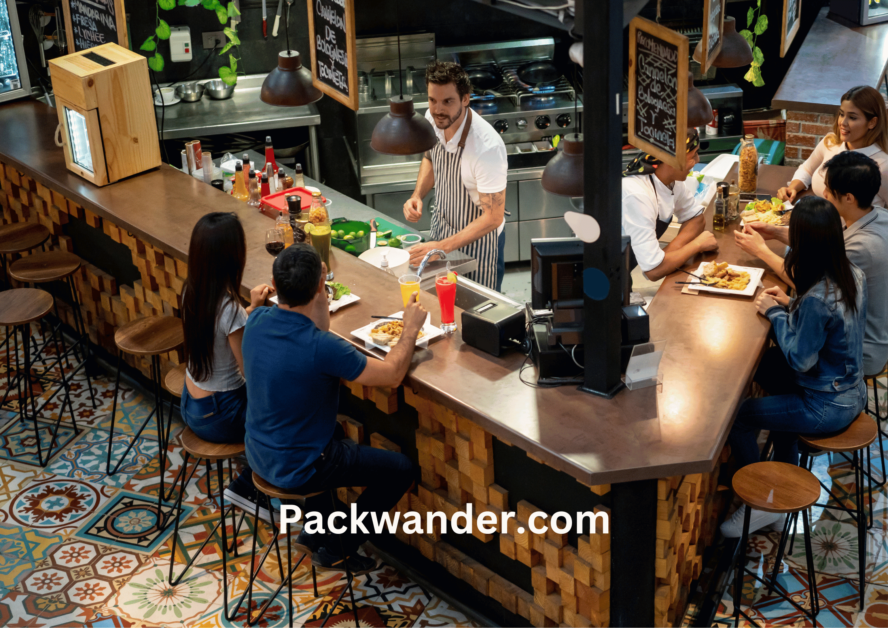
Airport food courts can be a tempting array of delectable treats, but they often pose a challenge for travelers trying to maintain a healthy diet. However, with a little know-how and some smart strategies, you can make nutritious choices and stay on track even amidst the enticing options. Let’s explore how to navigate airport food courts and make healthy choices during your travels.
Plan Ahead:
- Pack Snacks: Bring along your own healthy snacks like whole fruits, nuts, or granola bars to avoid the temptation of less nutritious options.
- Eat Before You Go: Have a balanced meal before arriving at the airport to reduce the urge to indulge in unhealthy fast food.
Scout the Options:
- Explore All Food Outlets: Take a stroll around the food court to assess all the available options before making a decision.
- Look for Healthier Menus: Seek out eateries that offer salads, grilled proteins, and vegetable-based dishes. Many airports now have healthier food choices available.
Smart Ordering:
- Choose Grilled Over Fried: Opt for grilled proteins like chicken or fish instead of fried options, which tend to be higher in unhealthy fats.
- Watch Portion Sizes: Pay attention to portion sizes, as airport food portions can often be larger than necessary.
Beverage Choices:
- Stay Hydrated: Ensure you consume an ample amount of water to maintain proper hydration while you’re on your journey. Avoid sugary beverages like sodas and opt for water or unsweetened tea.
- Limit Alcohol: If you choose to drink alcohol, do so in moderation, as excessive alcohol consumption can lead to dehydration.
Balanced Meals:
- Choose Whole Grains: Look for whole-grain options like whole-grain bread or brown rice to add fiber and nutrients to your meal.
- Load Up on Veggies: Add a variety of colorful vegetables to your meal for essential vitamins and minerals.
Avoid Excessive Condiments:
- Limit Dressings and Sauces: Use condiments sparingly as they can add extra calories and unhealthy fats.
- Ask for Modifications: Don’t hesitate to ask for healthier modifications to your meal, like extra vegetables or dressing on the side.
Enjoy in Moderation:
- Treat Yourself Occasionally: It’s okay to enjoy a treat now and then, but try to do so in moderation.
- Savor the Experience: Focus on savoring the experience of your travels, rather than solely focusing on the food.
By planning ahead, being mindful of your choices, and making informed decisions, you can navigate airport food courts and make healthier choices during your journey. With a little effort, you can enjoy delicious and nutritious meals that fuel your travels and keep you feeling your best.
Section 8: Packing a Nutritious Travel Snack Kit: Must-Have Items
Preparing a nutritious travel snack kit is a smart and convenient way to ensure you have wholesome options on hand during your journeys. With a well-stocked snack kit, you can avoid unhealthy temptations and stay energized throughout your travels. Let’s explore the must-have items for your nutritious travel snack kit.
1. Fresh Fruits:
- Apples, oranges, and bananas are portable and provide a natural source of energy with essential vitamins and fiber.
2. Nuts and Seeds:
- Almonds, walnuts, sunflower seeds, and pumpkin seeds are rich in healthy fats and protein, keeping you satisfied and energized.
3. Dried Fruits:
- Raisins, apricots, and cranberries offer natural sweetness and are packed with antioxidants and fiber.
4. Whole-Grain Crackers:
- Whole-grain crackers provide a crunchy and satisfying snack that pairs well with nut butter or cheese.
5. Nut Butter Packets:
- Individual packets of almond butter, peanut butter, or sunflower seed butter add creaminess and protein to your snacks.
6. Greek Yogurt Cups:
- Single-serving cups of Greek yogurt are a great source of protein and probiotics to keep your gut happy during travel.
7. Cheese Sticks:
- Pre-portioned cheese sticks provide a protein-rich snack that’s both tasty and satisfying.
8. Vegetable Sticks:
- Carrot sticks, celery, and cucumber are refreshing options that pair well with hummus or nut butter.
9. Dark Chocolate:
- A small piece of dark chocolate satisfies sweet cravings and provides antioxidants.
10. Granola Bars:
- Choose granola bars with whole grains, nuts, and dried fruits for a nutritious and convenient option.
11. Trail Mix:
- Create your own trail mix with a mix of nuts, seeds, dried fruits, and a touch of dark chocolate for a delightful treat.
12. Hydration Packets:
- Electrolyte or hydration packets can be added to your water bottle to keep you hydrated and replenish essential nutrients.
13. Instant Oatmeal Packets:
- Single-serving packets of instant oatmeal are quick and easy to prepare with hot water, making them a satisfying and nutritious snack.
14. Energy Bars:
- Choose bars with whole-food ingredients and minimal added sugars for a quick and substantial energy boost.
15. Reusable Water Bottle:
- Stay hydrated by carrying a refillable water bottle throughout your journey.
By packing a well-rounded travel snack kit with these must-have items, you can enjoy a range of nutritious options to fuel your travels. Whether you’re on a plane, in a car, or waiting at a terminal, your snack kit will keep you nourished and ready to embrace the adventure ahead!
Section 9: Eating Healthy on a Budget While Traveling: Smart Tips
Traveling on a budget doesn’t mean sacrificing your health. With a little planning and some savvy strategies, you can enjoy nutritious meals without breaking the bank. Let’s explore smart tips for eating healthy on a budget while traveling.
1. Pack Your Snacks:
- Bring along homemade snacks like trail mix, granola bars, and cut fruits to avoid pricey airport or convenience store snacks.
2. Shop at Local Markets:
- Visit local markets or grocery stores at your destination to purchase fresh fruits, vegetables, and other budget-friendly ingredients.
3. Cook Your Meals:
- If you have access to a kitchenette or shared kitchen, consider preparing simple meals like salads, pasta, or stir-fries with affordable ingredients.
4. Choose Street Food Wisely:
- Street food can offer delicious and budget-friendly options. Look for vendors selling fresh fruits, grilled meats, or vegetable-based dishes.
5. Embrace Food Trucks:
- Food trucks often offer diverse and budget-friendly meals that showcase local flavors and ingredients.
6. Opt for Lunch Specials:
- Many restaurants offer lunch specials at a lower price. Take advantage of these deals to enjoy a hearty meal without spending too much.
7. Share Meals:
- Splitting larger meals with travel companions not only saves money but also reduces food waste.
8. Drink Tap Water:
- Carry a reusable water bottle and refill it with tap water to avoid the cost of bottled water.
9. Look for Deals and Coupons:
- Search for discounts, coupons, or special offers at restaurants and eateries to get the most value out of your meals.
10. Prioritize Nutrient-Rich Foods:
- Focus on affordable nutrient-rich foods like beans, lentils, eggs, and seasonal fruits and vegetables.
11. Control Portions:
- Be mindful of portion sizes to avoid overeating and unnecessary expenses.
12. Avoid Tourist Traps:
- Steer clear of restaurants located in heavily touristy areas, as they tend to be more expensive.
13. Bring Reusable Containers:
- Carry reusable containers to pack leftover food for your next meal, reducing waste and saving money.
14. Explore Picnic Options:
- Enjoy a picnic with fresh ingredients from a local market or grocery store, combining convenience and cost-effectiveness.
15. Limit Alcohol and Sugary Drinks:
- Alcoholic beverages and sugary drinks can quickly add to your expenses. Opt for water or affordable non-alcoholic options instead.
With these smart tips, you can eat healthily and responsibly while staying within your budget during your travels. By being resourceful and mindful of your choices, you can have a memorable and nutritious journey without straining your wallet!
Section 10: Healthy Snacks for Adventure Travelers: Fueling Your Exploration
Adventure travelers require a steady supply of energy to fuel their exciting escapades. Choosing the right snacks can make a significant difference in sustaining endurance and keeping the adventurous spirit alive. Let’s explore nutritious and portable snacks that are perfect for adventure travelers on the go.
1. Trail Mix:
- A classic adventure snack, trail mix combines nuts, dried fruits, and seeds for a high-energy and nutrient-packed treat.
2. Energy Bars:
- Opt for energy bars made with whole-food ingredients, offering a quick boost of energy during outdoor activities.
3. Nut Butter Packets:
- Individual packets of almond butter, peanut butter, or sunflower seed butter provide a delicious and protein-rich pick-me-up.
4. Fresh Fruit:
- Portable fruits like apples, bananas, and oranges offer essential vitamins and natural sugars for quick replenishment.
5. Beef or Turkey Jerky:
- Lean beef or turkey jerky provides a savory and protein-packed snack, ideal for active adventurers.
6. Veggie Sticks with Hummus:
- Carrot, celery, and cucumber sticks paired with hummus deliver a refreshing and nutritious combination.
7. Rice Cakes with Avocado:
- Rice cakes topped with sliced avocado offer a satisfying and energizing snack for hikes and outdoor activities.
8. Cheese and Whole-Grain Crackers:
- Cheese sticks with whole-grain crackers provide a balance of protein and carbohydrates for sustained energy.
9. Dark Chocolate with Nuts:
- A small serving of dark chocolate with nuts offers a delightful and antioxidant-rich treat.
10. Greek Yogurt with Granola:
- Single-serving cups of Greek yogurt paired with granola supply a protein and fiber-rich option for active days.
11. Dried Edamame:
- Dried edamame is a crunchy and protein-packed alternative to traditional trail mix.
12. Banana Bread or Muffins:
- Homemade banana bread or muffins made with whole grains provide a hearty and wholesome snack.
13. Chia Seed Pudding:
- Chia seed pudding with almond milk and fresh fruit is a creamy and nutritious snack for adventure-filled days.
14. Quinoa Salad Cups:
- Pre-prepared quinoa salad cups with vegetables and a light dressing offer a well-rounded and portable meal option.
15. Hydration Packets:
- Electrolyte or hydration packets can be added to water bottles to replenish essential nutrients during strenuous activities.
With these healthy snacks at hand, adventure travelers can stay energized, focused, and ready for whatever challenges their explorations may bring. Packing a variety of nutritious options ensures that every adventure is met with vitality and enthusiasm, allowing you to fully embrace the thrill of your travels.
Section 11: The Best Foods to Beat Jet Lag: Tips for Adjusting Your Diet While Traveling
Jet lag can disrupt our internal clock and leave us feeling groggy and disoriented when we travel across time zones. Adjusting our diet can play a crucial role in minimizing jet lag’s impact and helping us adapt to the new time zone more smoothly. Let’s explore the best foods to beat jet lag and some tips for adjusting your diet while traveling.
1. Stay Hydrated:
- Drink plenty of water before, during, and after your flight to stay hydrated and counteract the dehydrating effects of air travel.
2. Eat Light Meals:
- Opt for light, easily digestible meals during your flight and upon arrival. Heavy or greasy foods can disrupt your body’s adjustment process.
3. Embrace Fruits and Vegetables:
- Load up on fresh fruits and vegetables, as they provide essential vitamins and minerals to support your immune system and energy levels.
4. Consume Melatonin-Rich Foods:
- Foods like cherries, tomatoes, and bananas contain natural melatonin, which can help regulate your sleep-wake cycle.
5. Prioritize Complex Carbohydrates:
- Choose whole grains like brown rice, quinoa, and oats to provide a steady source of energy and promote relaxation.
6. Include Lean Proteins:
- Lean proteins such as chicken, turkey, and tofu can help regulate blood sugar levels and promote restful sleep.
7. Avoid Caffeine and Alcohol:
- Minimize caffeine and alcohol intake, as they can disrupt sleep patterns and exacerbate jet lag symptoms.
8. Adjust Meal Times Gradually:
- Start adjusting your meal times to the new time zone a few days before your trip to ease your body into the new schedule.
9. Time Your Meals Wisely:
- Eating meals in alignment with the local time zone can help your body adjust its internal clock faster.
10. Get Sunlight Exposure:
- Seek natural sunlight exposure during daylight hours at your destination, as it helps regulate your body’s circadian rhythm.
11. Avoid Heavy Meals Before Bed:
- Refrain from heavy or large meals right before bedtime, as they can disrupt sleep and make it harder to adjust to the new time zone.
12. Consider Fasting:
- Some travelers find intermittent fasting helpful in resetting their body’s internal clock. Seek guidance from a healthcare expert prior to attempting fasting.
13. Snack Smartly:
- Choose light and nutritious snacks, like nuts, yogurt, or a piece of fruit, to keep your energy levels stable.
14. Stay Mindful of Food Allergens:
- Be mindful of any food allergies or sensitivities that could worsen jet lag symptoms. Avoid triggering foods during your travels.
By adjusting your diet while traveling and incorporating these jet lag-beating foods, you can help your body adapt more efficiently to the new time zone. Remember to stay well-hydrated, choose nutritious foods, and pay attention to your body’s signals to promote restful sleep and a smoother transition during your travel adventures.
Section 12: Eating Healthy in Hotel Rooms: Simple Recipes and Ideas
Staying healthy while traveling doesn’t have to be a challenge, even in hotel rooms with limited cooking facilities. With a little creativity and planning, you can enjoy nutritious and delicious meals right in the comfort of your hotel room. Let’s explore some simple recipes and ideas for eating healthy during your hotel stays.
1. Overnight Oats:
- Combine rolled oats with Greek yogurt, milk (or a milk alternative), and your favorite toppings like berries and nuts. Let it sit in the fridge overnight for a quick and nourishing breakfast.
2. Salad in a Jar:
- Layer your favorite salad ingredients, such as greens, cherry tomatoes, cucumber, and chickpeas, in a mason jar. Pack dressing separately and shake it up when ready to eat.
3. Microwave Egg Scramble:
- Beat eggs in a microwave-safe bowl, add chopped vegetables and a sprinkle of cheese. Cook the eggs in the microwave for 30-second intervals, making sure to stir in between, until they are fully cooked.
4. Rice or Quinoa Bowl:
- Prepare pre-cooked rice or quinoa and top it with canned beans, avocado, salsa, and a squeeze of lime for a flavorful and satisfying meal.
5. Hummus Veggie Wrap:
- Spread hummus on a whole-grain tortilla and add sliced cucumbers, bell peppers, and baby spinach. Roll it up for a nutritious and portable wrap.
6. Fruit and Cheese Plate:
- Pair sliced fruits like apples, grapes, and kiwi with cheese cubes for a simple and balanced snack or light meal.
7. Microwave Steamed Vegetables:
- Place fresh or frozen vegetables in a microwave-safe dish with a little water. Cover and microwave until tender. Season with herbs, olive oil, or lemon juice.
8. Canned Tuna Salad:
- Mix canned tuna with chopped celery, onion, and a dollop of Greek yogurt or mayonnaise. Serve it over mixed greens or on whole-grain bread.
9. DIY Smoothie Bowl:
- Blend frozen fruits with Greek yogurt and a splash of milk. Top with granola, nuts, and fresh fruit for a satisfying and refreshing breakfast.
10. Instant Soup Cups:
- Choose low-sodium instant soup cups, add hot water, and stir in some extra veggies for a quick and comforting meal.
11. Nut Butter and Banana Sandwich:
- Spread nut butter on whole-grain bread and top it with sliced bananas for a delicious and energy-boosting sandwich.
12. Baked Sweet Potato:
- Pierce a sweet potato with a fork, wrap it in a damp paper towel, and microwave until tender. Top it with Greek yogurt and a sprinkle of cinnamon.
13. DIY Snack Pack:
- Create your own snack pack with a mix of nuts, dried fruits, whole-grain crackers, and cheese for a convenient and healthy on-the-go snack.
14. Veggie Noodles:
- Use a spiralizer or buy pre-spiralized vegetables to make zucchini or carrot noodles. Toss them with a simple sauce or pre-cooked protein for a light and nutritious meal.
With these simple recipes and ideas, you can maintain a healthy and balanced diet while staying in hotel rooms. Eating well on the road is achievable, and with a little preparation, you can enjoy nourishing meals that keep you energized and ready to make the most of your travels.
Section 13: Mindful Eating During Travel: Enjoying Local Cuisine Responsibly
Traveling provides the perfect opportunity to indulge in diverse and flavorful local cuisines. While it’s essential to savor new tastes and experiences, mindful eating ensures we enjoy local delicacies responsibly and in balance. Let’s explore tips for practicing mindful eating during your travels, allowing you to fully appreciate the food while maintaining a healthy approach.
1. Savor Every Bite:
- Take your time to enjoy each mouthful, appreciating the flavors, textures, and aromas of the local dishes.
2. Practice Portion Control:
- Sample a variety of dishes in smaller portions to experience a wide range of flavors without overindulging.
3. Choose Local and Seasonal:
- Opt for locally sourced and seasonal dishes, as they often represent the region’s culinary authenticity and support local economies.
4. Balance Your Meals:
- Strive for balanced meals that include a mix of proteins, whole grains, vegetables, and healthy fats to nourish your body while embracing local specialties.
5. Be Adventurous, but Mindful:
- Try new dishes and flavors, but be mindful of your personal dietary needs and preferences.
6. Prioritize Hydration:
- Stay well-hydrated with water or herbal teas to support digestion and keep your energy levels up during your adventures.
7. Embrace Cultural Dining Norms:
- Observe and respect local dining customs and traditions to fully immerse yourself in the culinary experience.
8. Listen to Your Body:
- Be mindful of your body’s hunger and fullness signals, as it can help you prevent overeating and discomfort
9. Support Sustainable Practices:
- Seek out eateries that promote sustainable and ethical food practices, contributing positively to the local environment.
10. Be Mindful of Food Allergens:
- Communicate any food allergies or intolerances clearly to restaurant staff to ensure safe and enjoyable dining experiences.
11. Limit Processed and Sugary Foods:
- Minimize consumption of highly processed and sugary foods, and focus on fresh, natural ingredients whenever possible.
12. Engage with Local Chefs:
- Connect with local chefs and ask about the ingredients and preparation methods used in dishes to deepen your understanding and appreciation of the cuisine.
12. Engage All Your Senses:
- Relish the entire dining experience by engaging all your senses, from sight and smell to taste and touch.
14. Remember, Moderation is Key:
- It’s okay to indulge in occasional treats, but moderation is the key to maintaining a mindful and responsible approach to eating during your travels.
By practicing mindful eating, you can fully immerse yourself in the culinary delights of your destination while maintaining a balanced and conscious approach to your health and well-being. Enjoy your travel adventures with a mindful appreciation of local cuisine and a commitment to nurturing both your body and soul.
Section 14: Staying Hydrated During Travel: The Importance of Water and Other Beverages

Maintaining proper hydration is crucial for our well-being, especially during travel when we may be exposed to different climates and activities. Whether exploring new destinations or embarking on long journeys, staying hydrated is essential for optimal health and a positive travel experience. Let’s explore the importance of water and other beverages in keeping you hydrated during your travels.
1. The Importance of Hydration:
- Proper hydration is vital for regulating body temperature, supporting digestion, and transporting nutrients throughout the body. It also helps maintain energy levels and supports overall well-being.
2. Carry a Reusable Water Bottle:
- Always carry a refillable water bottle with you during your travels. Refilling it regularly ensures you have easy access to water at all times.
3. Drink Water Regularly:
- Ensure you make a deliberate attempt to stay hydrated by drinking water regularly throughout the day, regardless of whether you experience thirst or not. Sip water during flights, car rides, or any other travel activities.
4. Prioritize Water at Meals:
- Opt for water as your primary beverage choice during meals, as it helps with digestion and prevents excessive calorie intake from sugary drinks.
5. Set Hydration Reminders:
- If you tend to forget to drink water, set reminders on your phone or watch to prompt you to take sips regularly.
6. Hydrate Before and After Physical Activities:
- Before engaging in physical activities, drink water to hydrate your body. Afterward, replenish lost fluids by continuing to drink water.
7. Be Mindful of Alcohol and Caffeine:
- Alcohol and caffeine can dehydrate the body, so consume them in moderation and balance them with plenty of water.
8. Herbal Teas and Infused Water:
- Herbal teas and infused water can provide variety and flavor while keeping you hydrated.
9. Coconut Water:
- Coconut water is a natural electrolyte-rich beverage that can be a refreshing alternative to plain water.
10. Avoid Sugary Beverages:
- Limit the consumption of sugary drinks like sodas and fruit juices, as they can lead to dehydration and add unnecessary calories.
11. Pay Attention to Climate:
- In hot or humid climates, your body may lose more water through sweat. Drink more water to compensate for increased fluid loss.
12. Refill Water at Safe Sources:
- When traveling to unfamiliar places, ensure the water you refill your bottle from is safe and purified.
13. Hydrate During Air Travel:
- Airplane cabins can be dehydrating due to low humidity. Drink water regularly during flights to counteract the drying effects.
14. Monitor Urine Color:
- Monitor the color of your urine closely. Pale yellow indicates good hydration, while dark yellow signals that you need to drink more water.
15. Listen to Your Body:
- Trust your body’s signals and drink when you feel thirsty. Don’t ignore thirst, as it’s a natural indicator that your body needs water.
By prioritizing hydration and being mindful of the beverages you consume, you can ensure a healthy and enjoyable travel experience. Remember, water is your best friend during your journeys, keeping you refreshed, energized, and ready to make the most of your travel adventures.
Conclusion:
In this blog post, we explored the importance of making healthy food choices while traveling and provided practical tips and ideas to maintain a nutritious diet on the road. We discussed various aspects of eating healthily during travel, including choosing nutritious snacks, navigating airport food courts, eating mindfully, and staying hydrated.
Key Points:
- Healthy Snacks While Traveling: We highlighted the significance of carrying nutritious snacks during travel and provided a variety of healthy options suitable for different modes of transportation.
- Eating Healthy in Hotel Rooms: We offered simple and creative recipes that can be easily prepared in hotel rooms with limited cooking facilities.
- Mindful Eating During Travel: We emphasized the importance of savoring local cuisines responsibly, being mindful of portion sizes, and embracing cultural dining norms.
- Staying Hydrated During Travel: We discussed the significance of staying hydrated and provided tips for prioritizing water intake while also considering other beverages that support hydration.
Reiterating the Importance of Healthy Food Choices:
It’s evident that maintaining a balanced and nutritious diet during travel plays a critical role in keeping us energized, focused, and well-prepared for all the adventures that await us. Making mindful and responsible food choices allows us to fully enjoy the culinary delights of our destinations while caring for our health and well-being.
Encouraging Proactive Planning:
As travelers, we have the power to be proactive in planning our meals and snacks. By packing a nutritious travel snack kit, exploring local markets, researching healthier dining options, and staying mindful of our body’s needs, we can ensure a fulfilling and nourishing travel experience.
So, let’s embark on our journeys with a commitment to our health and enjoyment, cherishing the flavors of different cultures while embracing the joy of eating mindfully and responsibly. By prioritizing our well-being and making conscious food choices, we can turn every travel adventure into a gratifying and wholesome experience for both body and soul. Bon voyage to a healthier and happier travel journey

